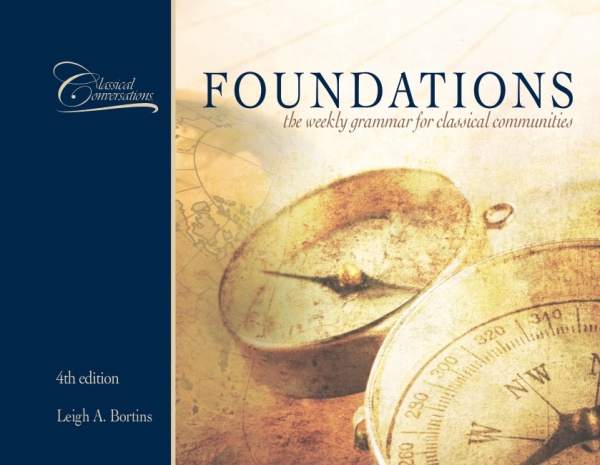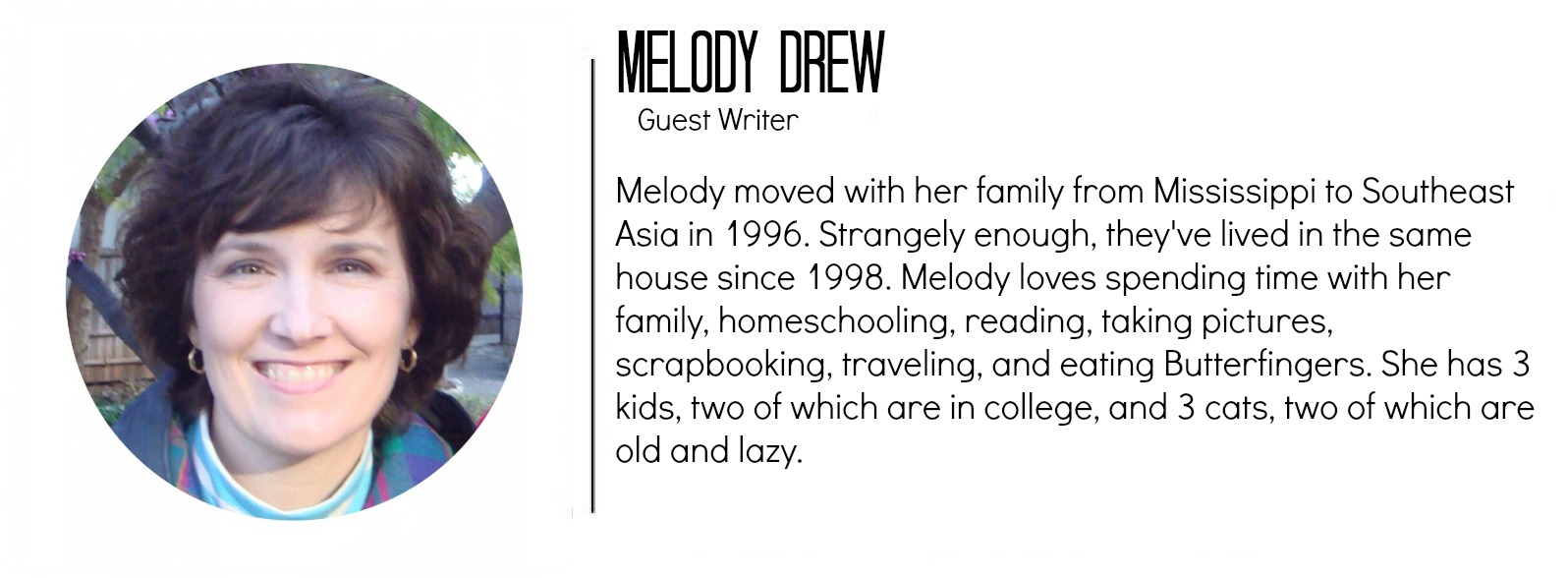Classical Conversations is for Everyone (Even Without a Community Group)
Last year, when my third child was in 7th grade, we became part of a Classical Conversations homeschool group. Even though it’s very popular in the U.S., I had never heard of “CC” before. However, I soon realized what a valuable supplemental program it was! In fact, I wish I had known about it when my first two were young enough to be involved.What is Classical Conversations? “CC” is a memorization course that covers geography, history, science, math, English grammar, and Latin. The goal is “to train the brain to retain.” The history facts and the math skip-counting facts are set to music, making the experience not only fun, but easier. Even though it’s geared toward elementary kids, older students benefit from the facts as well. It only takes about 30 minutes each day and it can be done with one child or a group of students of varying ages. We’ve experienced both and succeeded with both.What Classical Conversations is not? CC is NOT a full curriculum. It is a supplement that enhances all the other curriculum choices we make for our students. The facts the students learn serve as “hooks” for other information they will be learning through the years. However, CC is NOT like the memory work we had to do in school. No large chunks of information, just small bites. The students are NOT graded or scored on how they do. It should be a time of encouragement, NOT embarrassment. It’s NOT a one-time assignment. CC students review, review, review so that the information is retained in long-term memory. What resources are available for Classical Conversations? Parents buy the Foundations Guide ($60), which is very user-friendly. The guide includes 3 cycles, one for each year. Each cycle contains memory work for 24 weeks, plus additional maps and helpful information. CDs of the songs and weekly lessons are available for purchase, as well as flashcards. Only one guide is needed per family for all three cycles and for any number of children. It’s a great deal! Three years worth of information, plus if your child is young when you start, you can go through the cycles again for added retention! It’s easy to find more information about CC (see their website). If you have a visual learner or budding artist, let him/her make the flashcards instead of buying them. This year, I had Lindsey making her own flash cards on the first day of new material. But you definitely want to buy the CDs and the guide.I’ve got the book, now what do I do? Choose one day a week to introduce the week’s memory work. Listen to the CD with your student(s) and sing along to the history song. Talk about the science fact, but don’t make it a science lesson. If you or your student can think of a memory trick to help, use it! For example, when Lindsey learned the parts of the axial skeleton, she thought about the song “Head and Shoulders, Knees and Toes”. She memorized the axial skeleton to that same tune and used hand motions: Cranium, Vertebrae, Sternum, Ribs. Continue using cues and clues with the other subjects. On the next day, review all the new material, encouraging the students without making it stressful. Let them use the new flash cards if they need to. Listen to the CD again, if helpful. Each day, review the new material. As the weeks go by, keep reviewing the earlier material as well, as you have time. You are free to make it fun by making simple game boards or other motivational methods.Do we have to have a homeschool co-op or a group of kids? Absolutely not! It’s still worth doing for one child and is still very easy to do if you are overseas and far away from other ex-pats. We’ve done it successfully with a group and without one; abroad and in the US. Last year, we spent 3 months with a co-op in our host country, then went to the US for 5 months. Lindsey and I continued on our own, without a group, through the rest of the cycle. This year, we started cycle 3 on our own, but we are meeting with a group (which I now lead!) once a week. But because Lindsey and I started the cycle early, we stay several weeks ahead of the group I am teaching.Do we have to start with Cycle 1? Actually, you could start with whichever cycle fits best with the history you are doing. Cycle 1 history is more ancient civilizations/world history. Cycle 2 history is more recent world history (middle ages up to 1980s or so). Cycle 3 is American history and in this cycle, the kids learn the US capitals the first 10 weeks of geography. The Math facts actually repeat every year, so you don’t have to worry about missing something by starting with a different cycle.Do we have to memorize everything? No! You can always choose to skip any subject you don’t think is necessary for your students. For us, it's Latin we choose to leave out. You are in charge! The Foundations Guide includes ideas for science experiments and art/music activities. These, too, can be skipped or used according to your preference. So, if you aren't American and don't desire to spend a whole year on American History, then scrap Cycle 3. Use CC the way that works best for you and your family.Why should I invest time in Classical Conversations? Because learning the vocabulary of a subject is foundational in classical education. It gives the student a head start in learning more details. As they read in a science book and come across Newton’s Laws of Motion, they will have already memorized them. It won’t seem like anything too difficult to handle! Understanding comes after the foundation of information. In History, when you read about World War 1, your student will break out into song about the leaders of WWI. It’s fun to see the student’s eyes light up when he realizes that he’s learned a song or fact about a particular lesson. It’s also fun when your student begins to tell Dad about the things she has learned. She feels so smart and successful. And Dad is genuinely impressed! (Unless he is a physicist, he probably doesn’t remember any of Newton’s Laws of Motions!)
What resources are available for Classical Conversations? Parents buy the Foundations Guide ($60), which is very user-friendly. The guide includes 3 cycles, one for each year. Each cycle contains memory work for 24 weeks, plus additional maps and helpful information. CDs of the songs and weekly lessons are available for purchase, as well as flashcards. Only one guide is needed per family for all three cycles and for any number of children. It’s a great deal! Three years worth of information, plus if your child is young when you start, you can go through the cycles again for added retention! It’s easy to find more information about CC (see their website). If you have a visual learner or budding artist, let him/her make the flashcards instead of buying them. This year, I had Lindsey making her own flash cards on the first day of new material. But you definitely want to buy the CDs and the guide.I’ve got the book, now what do I do? Choose one day a week to introduce the week’s memory work. Listen to the CD with your student(s) and sing along to the history song. Talk about the science fact, but don’t make it a science lesson. If you or your student can think of a memory trick to help, use it! For example, when Lindsey learned the parts of the axial skeleton, she thought about the song “Head and Shoulders, Knees and Toes”. She memorized the axial skeleton to that same tune and used hand motions: Cranium, Vertebrae, Sternum, Ribs. Continue using cues and clues with the other subjects. On the next day, review all the new material, encouraging the students without making it stressful. Let them use the new flash cards if they need to. Listen to the CD again, if helpful. Each day, review the new material. As the weeks go by, keep reviewing the earlier material as well, as you have time. You are free to make it fun by making simple game boards or other motivational methods.Do we have to have a homeschool co-op or a group of kids? Absolutely not! It’s still worth doing for one child and is still very easy to do if you are overseas and far away from other ex-pats. We’ve done it successfully with a group and without one; abroad and in the US. Last year, we spent 3 months with a co-op in our host country, then went to the US for 5 months. Lindsey and I continued on our own, without a group, through the rest of the cycle. This year, we started cycle 3 on our own, but we are meeting with a group (which I now lead!) once a week. But because Lindsey and I started the cycle early, we stay several weeks ahead of the group I am teaching.Do we have to start with Cycle 1? Actually, you could start with whichever cycle fits best with the history you are doing. Cycle 1 history is more ancient civilizations/world history. Cycle 2 history is more recent world history (middle ages up to 1980s or so). Cycle 3 is American history and in this cycle, the kids learn the US capitals the first 10 weeks of geography. The Math facts actually repeat every year, so you don’t have to worry about missing something by starting with a different cycle.Do we have to memorize everything? No! You can always choose to skip any subject you don’t think is necessary for your students. For us, it's Latin we choose to leave out. You are in charge! The Foundations Guide includes ideas for science experiments and art/music activities. These, too, can be skipped or used according to your preference. So, if you aren't American and don't desire to spend a whole year on American History, then scrap Cycle 3. Use CC the way that works best for you and your family.Why should I invest time in Classical Conversations? Because learning the vocabulary of a subject is foundational in classical education. It gives the student a head start in learning more details. As they read in a science book and come across Newton’s Laws of Motion, they will have already memorized them. It won’t seem like anything too difficult to handle! Understanding comes after the foundation of information. In History, when you read about World War 1, your student will break out into song about the leaders of WWI. It’s fun to see the student’s eyes light up when he realizes that he’s learned a song or fact about a particular lesson. It’s also fun when your student begins to tell Dad about the things she has learned. She feels so smart and successful. And Dad is genuinely impressed! (Unless he is a physicist, he probably doesn’t remember any of Newton’s Laws of Motions!) If I haven’t convinced you yet, imagine how much fun it will be when you take your students on a family vacation to D.C. or to other historical sites in the US. Because of the knowledge they’ve gained through CC, it actually becomes an even more enjoyable experience. I know this to be true because we went to D.C. last March. Lindsey had a song for just about every place we visited. Her older siblings, who are in college, were impressed, and a little jealous, at how much she knew.Others Links that You May Enjoy on the Subject:
If I haven’t convinced you yet, imagine how much fun it will be when you take your students on a family vacation to D.C. or to other historical sites in the US. Because of the knowledge they’ve gained through CC, it actually becomes an even more enjoyable experience. I know this to be true because we went to D.C. last March. Lindsey had a song for just about every place we visited. Her older siblings, who are in college, were impressed, and a little jealous, at how much she knew.Others Links that You May Enjoy on the Subject:
- What is Classical Education? @ The Well-Trained Mind
- Classical Conversations: An Introduction @ Simple Homeschool
- Classical Conversations without a Community Group @ Homeschool with Winnie
Have you currently incorporated Classical Conversations into your school day? Are you using it while still overseas? Do you have any tips or resources you would like to share? Please do so in the comments!  Photo Credit: xophe_g via Compfight cc
Photo Credit: xophe_g via Compfight cc

